
The MERGED programme provides you with a single entry-point access to top-level and up-to-date teaching. The programme is jointly developed and delivered by the MERGED consortium consisting of:
– University of Copenhagen, Faculty of Science, Copenhagen (Denmark)
– University of Milan, Department of Agricultural and Environmental Sciences – Production, Landscape, Agroenergy, Milan (Italy)
– University of Warsaw, Centre for Environmental Studies and Sustainable Development, Warsaw (Poland)
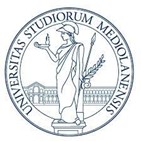

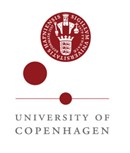
The three universities all have significant experience in research-based teaching. The core staff consists of internationally recognised specialists. In total, more than 30 faculty members participate in the MERGED programme.
The MERGED programme also benefits from a worldwide collaboration programme with Associated Partner institutions, from other universities to private companies and civil society organisations. These partners are integrated into the joint implementation of the field trip in the first year, teaching selected module components, hosting MSc thesis students, participating in the employment workshop at the end of the programme, and providing feedback on teaching and graduate quality. Find an updated list of Associate Partners on the MERGED website here.
University of Copenhagen
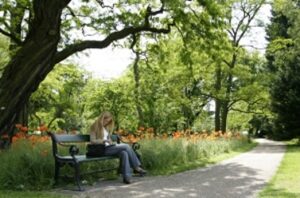
Driven by intellectual creativity and critical thinking since 1479, researchers and students at the University of Copenhagen have expanded horizons and contributed to moving the world forward. With its 5,000 researchers and 37,500 students, the University boasts an international research and study environment and is highly ranked among the world’s best universities.
Faculty of Science is located in the buzzing heart of the capital city, Copenhagen, with easy access to the rich cultural life, museums, theatres, restaurants and cafés. Frederiksberg Campus is one of the oldest and most attractive campuses in Denmark, known for its strong student engagement and superior study environment. SCIENCE also comprises four experimental farms, a Pometum and an Arboretum, thus linking theoretical studies with practical research.
SCIENCE offers a vibrant international study milieu with well-established integration and support structures. www.science.ku.dk/english
University of Milan
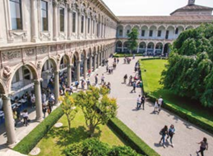
The University of Milan, founded in 1924, is the largest higher education institution in the region of Lombardy, with 10 Faculties, 31 Departments and about 65.000 students. The main campus is based in one of the most significative Renaissance buildings in Milan, the so called “Ca’ Granda”, a former hospital located in the very centre of the city, while the scientific Faculties are placed in the modern district “Città Studi” in the eastern part of the city. Being the only Italian member of LERU (League of European Research Universities), the University of Milan is strongly committed to the promotion of basic research, technological innovation, teaching quality and integration with the dynamic labour market in Lombardy.
The Faculty of Agricultural and Food Sciences is the largest in Italy. With a broad, diversified educational offering, the Faculty gives students important training opportunities thanks to its modern laboratories – including those for advanced computing, chemistry, microbiology, sensorial analysis, genetics and molecular biology – its three experimental farms and an innovative greenhouse complex. The well-established network of research agreements with companies in the agricultural and food sector and with public bodies provides opportunities for internships in various fields
University of Warsaw

The University is located in the capital of Poland, one of the most dynamically developing European cities. Warsaw is the centre of political and economic life and has a lively social and cultural scene. It is steadily climbing the international rankings of the world’s most attractive urban areas. According to Nature: Warsaw is the country’s main research hub and is becoming a hub of globally competitive science. (“Poland: Into the light”,2017).
The University of Warsaw was founded in 1816 originally under the name of the Royal University of Warsaw. It is the largest, best and one of the oldest higher education institutions in Poland, as well as the longest-operating university in the capital. The University has more than 40,000 students and educates more than 2,000 doctoral students. Each year, more than 9,000 graduates graduate from the university, among whom were 6 later Nobel Prize winners:
▪ Henryk Sienkiewicz, Czeslaw Milosz, Olga Tokarczuk – Nobel Prize for Literature;
▪ Menachem Begin, Joseph Rotblat – Nobel Peace Prize;
▪ Leonid Hurwicz – Nobel Prize in Economics.
At the time of its establishment, the University consisted of five faculties: Law, Medicine, Philosophy, Theology, and Sciences and Fine Arts. Today, the university consists of 25 faculties and more than 30 research units, including the University’s Center for Environmental Studies and Sustainable Development.
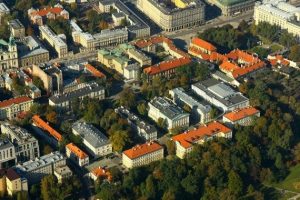
The University Centre for Environmental Studies and Sustainable Development (UCBS) is a university-wide organisational unit of the University of Warsaw, in addition to a department or doctoral school. The Centre was established on 15 February 1989, and in 2014 the phrase ‘and Sustainable Development’ was added to the original name University Centre for Research on the Environment. The organisation of the educational process at UCBS is based on the harmonious involvement under the leadership of the University Centre for Research on the Natural Environment and Sustainable Development of various faculties of the University of Warsaw. Today there are 7 Faculties co-founding UCBS: Biology, Chemistry, Physics, Geography and Regional Studies, Geology, Economic Sciences, Law and Administration, working in close cooperation with others, among others with the Faculty of Management. Thanks to diversity, our students have the opportunity to acquire a wide range of global competencies and practical skills that meet the needs of educating personnel with specific, diverse and versatile competencies.
The MERGED Commission, Co-ordinator and Secretariat administrate the MERGED programme. The MERGED Commissionis the supreme administrative and executive body of the consortium. It is headed by the Consortium Co-ordinator and consists furthermore of one representative of the other two institutions and one non-voting student representative selected by and amongst the entire MERGED student body. The Commission meets at least twice a year to discuss and follow-up on module and programme evaluations, discuss programme quality, and to decide on economic matters within the consortium.
The MERGED Co-ordinator is Professor Carsten Smith-Hall, Department of Food and Resource Economics, Faculty of Science, University of Copenhagen, Denmark. Apart from being the daily administrator of the programme, the Co-ordinator chairs the Commission, and is responsible for all contact with the European Commission. Local Coordinators are: Mariola Zalewska, PhD- University Centre for Environmental Studies and Sustainable Development; University of Warsaw; and prof. Carlo Pozzi– Department of Agricultural and Environmental Sciences – Production, Landscape, Agroenergy; University of Milan
The Secretariat is the central executive body of the MERGED programme. The MERGED Secretariat consists of employees from all three partner universities. All inquiries to the secretariat should be written to merged@science.ku.dk
MERGED aims to create in-depth and lasting relationships in Europe, Africa, Asia, South America, and North America (and our Associate Partnership network already includes partners from all these continents). We see the inclusion of Partners as an ongoing and inclusive process.
We collaborate with a strong global Partners network. MERGED acts globally to promote a European vision of the environmental-development nexus, enhancing EHEA attractiveness through the programme’s reputation, innovative teaching approaches, integrated cross-country and cross-institutional collaboration, and the career profiles of graduates. Experiences are directly available to others through programme-level tools and explicit documentation and sharing of collaboration lessons learned.
List of participating organisations:
UNIVERSITA DEGLI STUDI DI MILANO
Tribhuvan University, Institute of Forestry Nepal Associated
Cambodia Development Resource Institute Cambodia Associated
BAHIR DAR UNIVERSITY Ethiopia Associated
FUNDACAO UNIVERSIDADE DE BRASILIA Brazil Associated
CSIR-FORESTRY RESEARCH INSTITUTE OF GHANA Ghana Associated
Ziemia i Ludzie Poland Associated
Fundacja Planet / Planet Foundation Poland Associated
CCC Poland Associated
ISTITUTO COOPERAZIONE ECONOMICA INTERNAZIONALE ASSOCIAZIONE Italy Associated
NARODOWA FUNDACJA OCHRONY SRODOWISKA Poland Associated
MUZEUM PALACU KROLA JANA III W WILANOWIE Poland Associated
UNIVERSIDAD MAYOR DE SAN SIMON Bolivia Associated
McGill University-Macdonald Campus Canada Associated
Université de Thiès Senegal Associated
4EU+ EUROPEAN UNIVERSITY ALLIANCE E.V. Germany Associated
ROYAL UNIVERSITY OF BHUTAN Bhutan Associated
NEPCON FMBA Denmark Associated
COSPE was founded in 1983 and is a non-profit association of international cooperation. COSPE operates in 24 countries alongside civil society and local communities, committed like us to social justice and peace, supporting marginalized and discriminated groups in particular in their requests for social inclusion, human rights and democracy. COSPE is responsible for supporting and facilitating the ecological transition and the care of common goods (water, land, forests, biodiversity and health), the recognition of rights, with particular attention to the social inclusion of migrants, of women and gender equity. COSPE NGO is an interesting AP for the MERGED Master due to the shared general mission, and to its direct involvement in development processes in the global south.
Movimento Africa ’70 was born in 1971, from the context and from the people who participated in the struggles for civil rights, in Italy and in the world, and from the period of decolonization of Africa. The journey of Africa 70 began with active solidarity with those peoples who were then struggling to free themselves from colonialism. The organization’s goal is to promote fair and sustainable human development processes, stimulating the active participation of all, the sharing of local knowledge and the enhancement of the cultural and environmental heritage of the territories. The sectors of intervention are food security, agriculture and rural development, water and the management of water resources, the environment, urban planning, territorial planning, governance, and active citizenship that social inclusion. Movimento AFrica 70 is an interesting AP for the MERGED Master due to the shared general mission, and to its direct involvement in development processes in the global south.
TerraNuova is a non-profit association, founded in 1969 and established on 13 October 1971, committed to international solidarity and cooperation between communities and peoples. The main objective is the strengthening of the social actors present in the various countries of the world, actors interested in contributing to social change, the promotion of equity, economic, ecological, political, cultural sustainability and peace. To date, TerraNuova is active in agricultural sustainability in the global south, in Latin America, Africa and Europe. Among many processes in which TerraNuova is involved, the Civil Society Mechanism of the UN Food and Agriculture Organisation has to be mentioned. TerraNuova NGO is an interesting AP for the MERGED Master due to the shared general mission, ant to its direct involvement in development processes in the global south.
UCAD – University Cheick Anta Diop (Dakar)
Cheick Anta Diop University was funded in 1957 in collaboration with the Universities of Bordeaux and Paris. The Cheikh Anta Diop University of Dakar has 6 faculties: Economic and management, litterature and human sciences, sciences and techniques, medicine, pharmacy and odontostomatology, legal and political sciences, sciences and technologies of education and training. The university collabroates with more than 200 organizations across the world to contribute to the development of didactics, research and third mission (socio-economic impact in Senegal). The university is an interesting AP for the Merged Master due to the high number of students enrolled and the high interest in developing international collaboration that may increase the impact of local human capital on development and welbeing of communities in Senegal.
The University of Parakou is Benin’s second state university. It was created in 2001. The main objectives of the university are the training of specialized executives for the needs of the economic, social, intellectual and cultural development of Benin, the contribution into the development of scientific, basic and applied research, the contribution to the development of the national economy. The University of Parakou is made up of eleven research and training entities grouped into the areas following: Law, political science and international relations; Economics and Management; Statistics, demography and planning; Literature and Human Sciences (Sociology-anthropology, Geography and regional planning, Languages); Health (medicine, nursing and midwifery, epidemiology); Agronomy (agroeconomics and agricultural and water sciences); University Institute of Technology – Management option”. The university is an interesting AP for the Merged Master due to the high number of students enrolled and the high interest in developing international collaboration that may increase the impact of local human capital on development and welbeing of communities in Benin.
Palestine Technical University – Kadoorie
Palestine Technical University – Kadoorie (Formerly known as Tulkarm Community College) was an agricultural college located in Tulkarm, in the northern West Bank. The college was inaugurated in 1930 after the British Governmen. The Palestine Technical University Kadoorie took the actual name in 2007 as the first full fledged governmental university focusing on scientific, technological and technical disciplines. Founded on the premises of the renowned Kadoorie Agricultural College in the beautiful city of Tulkarm, PTUK is comprised of four academic colleges: Engineering and Technology, Science and Education, Management and Business, and Agricultural Sciences. The university is an interesting AP for the Merged Master due to the high number of students enrolled and the high interest in developing international collaboration that may increase the impact of local human capital on development and welbeing of communities in Palestine.
UNIOUAGA – University of Ouagadougou
Founded in 1974, the University of Ouagadougou is in the area of Dagnöen Nord in Ouagadougou, Burkina Faso. The university had around 40,000 students in 2010 (83% of the national population of university students). The university consists of seven Training and Research Units (UFR) and one institute: UFR Languages, Arts and Communications; UFR Human sciences; UFR Legal and Political Sciences; UFR Economic Sciences and Management; UFR Applied Sciences; UFR Health Sciences; UFR Life and Hearth Sciences and Burkinabé Institute of Arts and Crafts. The university is an interesting AP for the Merged Master due to the high number of students enrolled and the high interest in developing international collaboration that may increase the impact of local human capital on development and welbeing of communities in Burkina Faso.
UNDH – University Notre Dame d’Haiti
The University Notre-Dame d’Haïti is a « Catholic University » created by the Episcopal Conference of Haiti on the 27 June 1995. The university is private, decentralised, and has 5 faculties in different Haitian department: Faculty of Medicine and Health Sciences, Faculty of Economical, Social and Political Sciences, Faculty of Administrative Sciences – Cap-Haïtien, Faculty of Agriculture – Cayes, Faculty of Administrative Sciences – Jacmel. The university is an interesting AP for the Merged Master due to the high number of students enrolled and the high interest in developing international collaboration that may increase the impact of local human capital on development and welbeing of communities in Haiti.
The association Dévelo – Laboratory of Cooperation was born in 2013, at the Faculty of Agriculture of the University of Milan, from the desire of a group of students and recent graduates to build a space for discussion and exchange relating to the experiences of international cooperation in the agri-food sector. Dévelo believes in the urgency of contributing to building sustainable societies according to a holistic approach: from an environmental, economic and cultural point of view. For this reason, we recognize in agroecology the transversal approach necessary to structure the relationship of man and woman with the environment and with communities in a harmonious, equitable and sustainable way. Dévelo is active in the fields of international and inter-university cooperation, education for global citizenship and research. Dévelo LC is a suitable associate partner due to the specific mission of bridging students and other group of users within the academia, and due to the direct involvement in agroecological projects.
The history of Valagro began in the 80s with a distinctive value: the constant search for innovation, with respect for nature and ethics. Today Valagro is a leading company in the production and marketing of biostimulants and nutritional specialties, with 13 branches located all over the world. Today Valagro operates through two business areas: Farm for agriculture, Industrials for industrial sales. Valagro seeks to adopt and spread an alternative mentality called the „Third Way”, pursuing excellence and applying science to agriculture to produce more healthy food, with sustainability at heart. Being a Multinational company aiming to commercialise new and sustainable solutions for cropping, VALAGRO is an interesting AP for the MERGED Master due to the need of encouragin the private sector to seriously takle the Agenda 2030 goals.
Københavns Universitet, Sankt Peders Stræde, Pisserenden, Indre By, Kopenhaga, Copenhagen Municipality, 1168, Dania
https://www.ku.dk/english/
Università degli Studi di Milano - Facoltà di Scienze Agrarie e Alimentari
https://www.unimi.it/en
Krakowskie Przedmieście 26/28
00-927 Warsaw
www.en.uw.edu.pl
Tribhuvan University, Ashram Marg, Balkhu, Kathmandu-14, Katmandu, Kathmandu Metropolitan City, Katmandu, Bagmati Province, 44613, Nepal
CDRI, Street 315, Sangkat Boeung Kak Ti Pir, Khan Toul Kork, Phnom Penh, 120408, Kambodża
Bahir Dar University, BiT, 3, Shemabo, Sari Menideri, Bahyr Dar, Amhara, 6000, Etiopia
Estrada Parque das Nações, Brasília, Plano Piloto, Região Geográfica Imediata do Distrito Federal, Região Integrada de Desenvolvimento do Distrito Federal e Entorno, Região Geográfica Intermediária do Distrito Federal, Dystrykt Federalny, Region Środkowozachodni, 70818-900, Brazylia
Fumesua, Ejisu Municipal District, Region Aszanti, Ghana
21, Skindergade, Indre By, Kopenhaga, Copenhagen Municipality, Region Stołeczny, 1159, Dania
3, Fischmarkt, Altstadt, Heidelberg, Baden-Württemberg, 69117, Germany
https://4euplus.eu/4EU-1.html?
91C, Podkowy, Aleksandrów Pierwszy, Aleksandrów, Wawer, Warszawa, województwo mazowieckie, 04-937, Polska
École Polytechnique de Thiès, Voie de Contournement Nord, Thiès, Commune de Thiès Ouest, Arrondissement de Thiès Sud, Département de Thiès, Thiès, 21000, Senegal
C13, 13, Erazma Ciołka, Koło-Górczewska, Koło, Wola, Warszawa, województwo mazowieckie, 01-445, Polska
Biedronki, Morysin, Wilanów Królewski, Wilanów, Warszawa, województwo mazowieckie, 02-960, Polska
Rue East Cottages, Sainte-Anne-de-Bellevue, Urban agglomeration of Montreal, Montreal (administrative region), Quebec, H9X 3V9, Kanada
Viale Ca' Granda, Niguarda - Cà Granda, Municipio 9, Mediolan, Lombardia, 20162, Włochy
Universidad Mayor de San Simón, Calle Jordán, Gerónimo de Osorio, Cercado, Cochabamba, Boliwia
Royal University of Bhutan (RUB), Thongsel Zur Lam 6 NW, Chang Gangkha, Thimphu, Chang Gewog, Thimphu, Thimphu District, 11001, Bhutan
Laikipia North, Laikipia, Rift Valley, Kenia
COSPE NGO
Movimento Africa 70
Université Cheikh Anta Diop, Rue de Saint-Louis (PE-44), Zone B, Commune de Fann-Point E-Amitié, Arrondissement de Dakar-Plateau, Dakar, Dakar Region, 13000, Senegal
